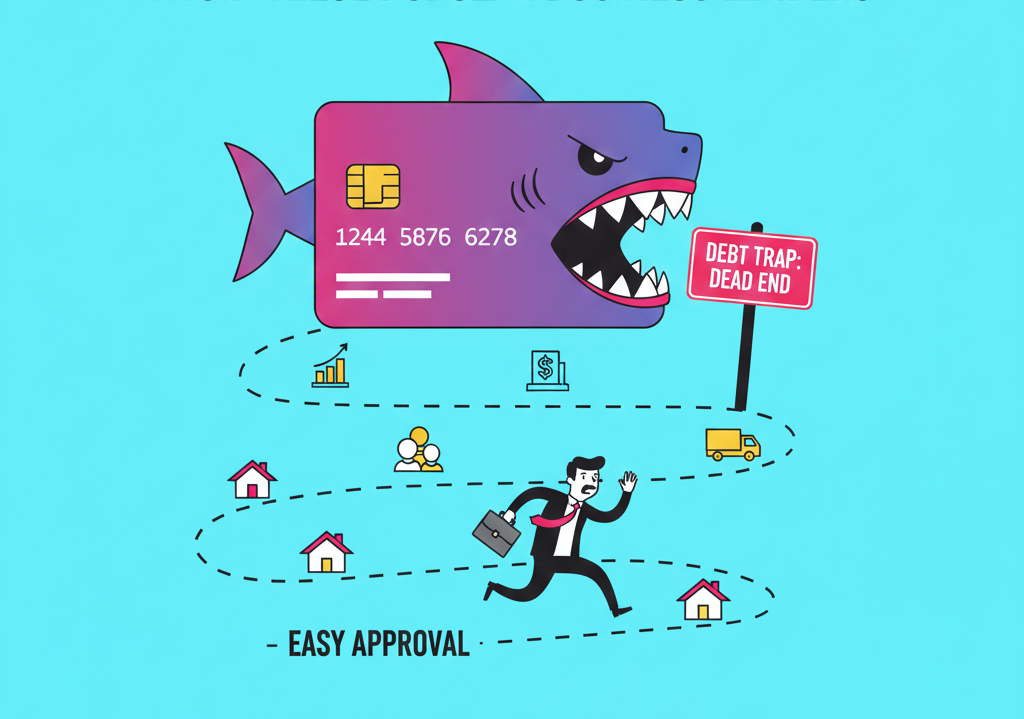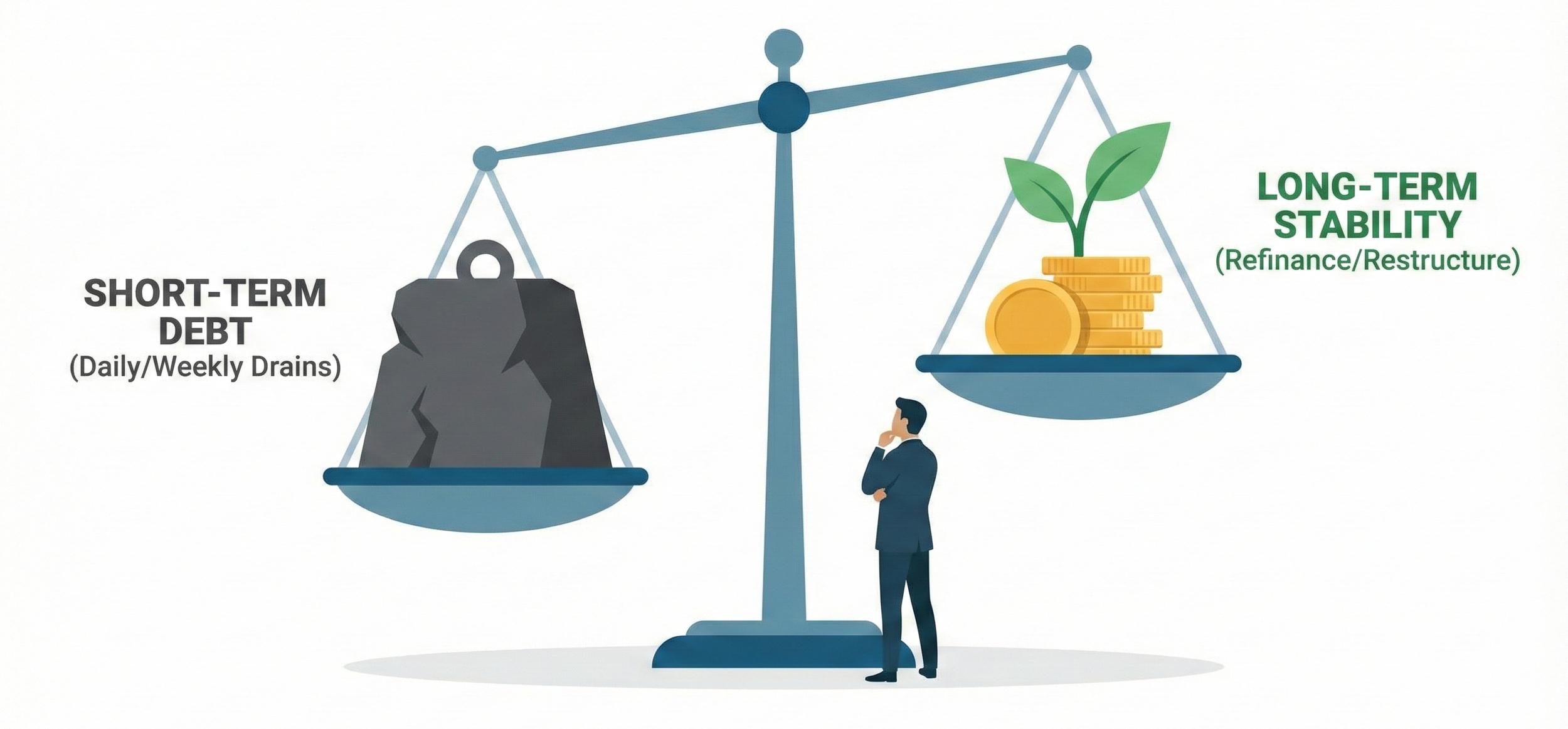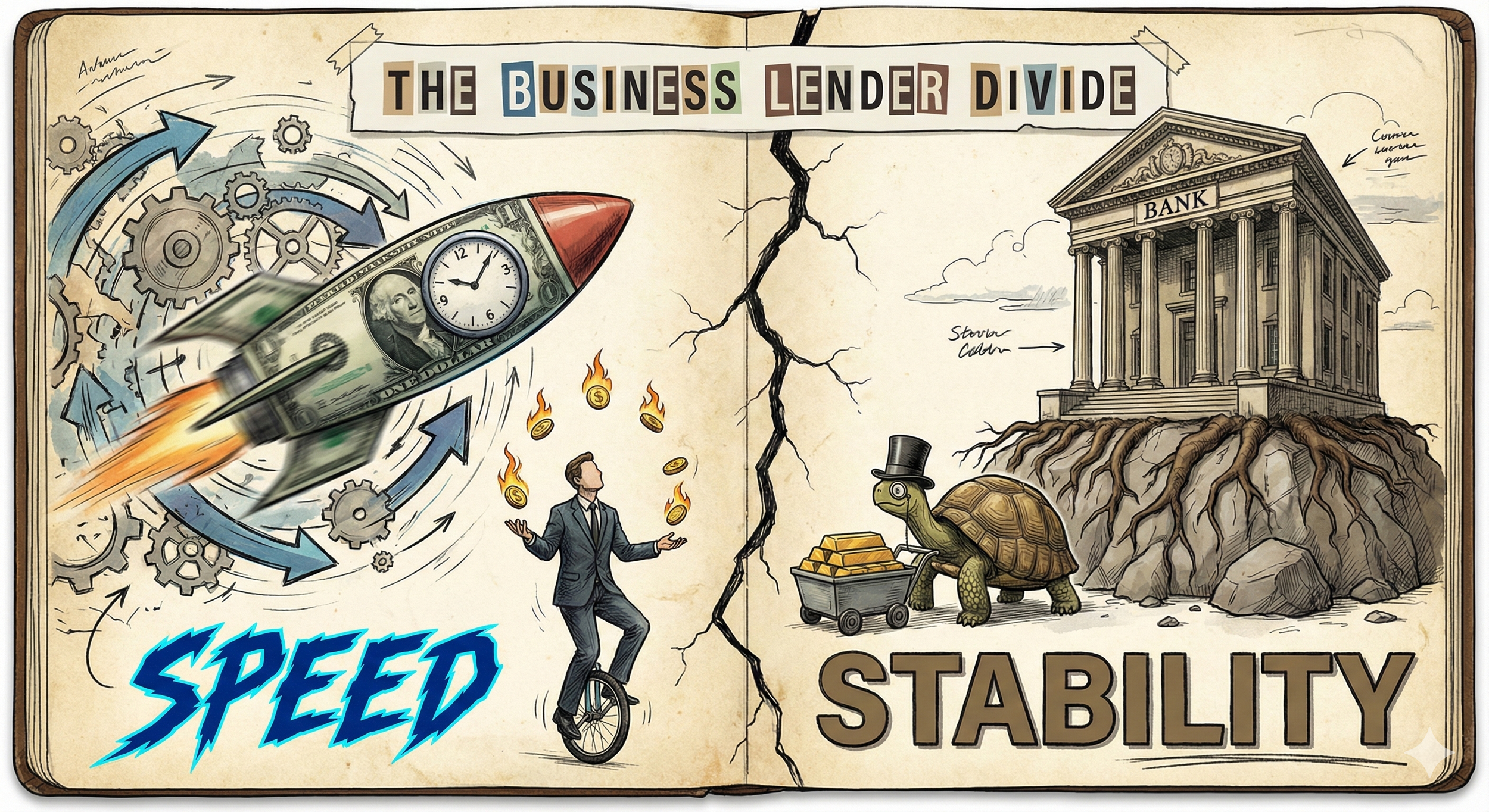You have a general sense of what's coming in and what's going out. Your bank account looks healthy enough.
But what if that 'healthy enough' feeling is masking a silent, insidious threat to your business's long-term viability?
What if the seemingly small inaccuracies in your financial records are actually a hidden price tag, accumulating interest in ways you can't even imagine?
The real cost of inaccurate business financials extends far beyond a simple miscalculation on a spreadsheet.
It's a domino effect of looking at accrual basis vs. cash basis, poor decisions, missed opportunities, and escalating risks that can erode your profits, stunt your growth, and even jeopardize the very existence of your business.
This article will peel back the layers of this hidden problem, revealing the true and often devastating consequences of neglecting your financial health. We'll explore ten key areas where this silent menace can wreak havoc, offering a crucial wake-up call for every small business owner who believes they can afford to be anything less than meticulous with their numbers.
Cash vs. Accrual: Reality vs. Speculation
The core difference between cash and accrual accounting is all about timing.
Think of it like a stopwatch for your money.
With accrual accounting, you record income and expenses when the transaction happens, not when the money actually moves. If you send an invoice to a client for work you completed today, you record that revenue today, even if they won't pay you for 30 or 60 days. Likewise, if you get a bill from a vendor for services rendered, you record that expense today, even if you don’t pay it until next month. This method is often preferred for its ability to match revenues with the expenses incurred to generate them, giving a more accurate long-term view of a business's profitability. It's the standard for larger businesses and public companies.
Cash-basis accounting, on the other hand, is much simpler and more direct. It's like your personal checkbook. You record income only when you receive the cash and you record expenses only when you pay them. That invoice you sent today? You don't record the revenue until the payment hits your bank account weeks from now. That vendor bill? It's not an expense on your books until the day you actually write the check or make the transfer. This method is intuitive and gives you a clear, real-time picture of the money flowing in and out of your business. It’s what most small businesses use for their day-to-day management because it's tied directly to the most important thing: available cash.
Misguided Strategic Decisions
Imagine you're navigating a ship through treacherous waters, but your compass is off by a few degrees. You might still reach a destination, but it will be the wrong one, and you'll waste valuable time and resources getting there. This is the reality for a business owner operating with inaccurate financials. Your financial statements are your strategic compass, providing the data needed to make informed decisions about pricing, product mix, and market expansion.
When your profit and loss statement is a work of fiction, you might believe a product line is wildly successful when it's actually a drain on your resources. You might allocate more marketing dollars to an underperforming service, pouring good money after bad.
Conversely, you could prematurely discontinue a profitable product because its true contribution to the bottom line is obscured by faulty data. These are not minor mistakes; they are fundamental errors that can lead to squandered capital, a misaligned business model, and a significant loss of competitive advantage.
Without a clear and accurate picture of your financial performance, your strategic decisions are nothing more than educated guesses, and in today's competitive landscape, guesswork is a luxury few small businesses can afford.
Overlooking Cash Flow Crises
Cash flow is the lifeblood of any small business. It's the oxygen that keeps the lights on, the payroll running, and the doors open. A business can be profitable on paper but still fail due to a lack of liquidity. This is a classic example of where inaccurate financials can be a fatal flaw. You might be invoicing clients, and your accounts receivable ledger looks great, but if those invoices are not being paid on time and you're not tracking this diligently, a cash flow crisis can sneak up on you with shocking speed.
Inaccurate financial records can mask a looming cash flow problem by failing to distinguish between profit and cash. You might have a high gross margin, but if your inventory is moving slowly, your customers are slow to pay, and your accounts payable are piling up, you're heading for a cliff. Conversely, you might be taking on debt or equity to cover short-term operational costs, not realizing that a minor adjustment to your collections process or inventory management could have solved the issue.
The real cost here is not just the potential for business failure, but the stress, sleepless nights, and the desperate scramble for emergency funding that could have been entirely avoided with accurate and up-to-date financial data.
Inefficient Resource Allocation
Every dollar you spend in your small business has to work for you. From marketing and advertising to staffing and equipment, each expenditure should contribute to your growth and profitability. But how can you possibly know if your resources are being used effectively if you don't have accurate data to measure their return on investment?
Imagine you're a restaurant owner. You spend a significant amount on a new kitchen appliance, believing it will increase efficiency and speed up service. However, if your financials are a mess, you won't be able to accurately track the impact of this investment on your bottom line.
Did it actually reduce labor costs or increase customer turnover?
Was the investment worth it?
Without clean data, you're flying blind.
The same principle applies to everything from software subscriptions to employee salaries. Inaccurate financials lead to guesswork in resource allocation. You might be overspending on marketing channels that aren't generating leads, overstaffing during slow periods, or investing in technology that doesn't deliver a tangible benefit.
This inefficiency is a silent killer, slowly draining your resources and preventing you from reinvesting in the areas that truly drive growth.
Damaging Relationships with Lenders and Investors
When it comes to securing funding, be it a bank loan to expand your operations or an investment from a private equity firm, your financial statements are your resume. They are the first and most critical piece of information a potential lender or investor will scrutinize. If those statements are riddled with errors or inconsistencies, it immediately raises a red flag and erodes trust.
Lenders and investors are looking for a clear, verifiable history of financial performance. They want to see consistent profitability, healthy cash flow, and a reasonable debt-to-equity ratio. Inaccurate financials make it impossible to present this clear picture. Even if your business is fundamentally sound, shoddy bookkeeping can make it look like a high-risk proposition. This can lead to loan rejections, higher interest rates, or the complete loss of a potential investment opportunity.
The real cost here is twofold: not only do you miss out on the capital you need to grow, but you also damage your reputation in the financial community, making it even harder to secure funding in the future.
The message you're sending is that you're not a serious business owner, and that's a perception that's incredibly difficult to change.
The High Cost of Tax Miscalculations
Taxes are a fact of life for every business owner. While they are often seen as a necessary evil, they also present an opportunity for strategic financial planning. However, this is only possible if your financial data is accurate and complete. Inaccurate financials can lead to a host of tax-related problems, each with its own expensive consequences.
For starters, you could be overpaying your taxes. Perhaps you're missing out on legitimate deductions or credits because your records are incomplete or disorganized. You might not be accurately tracking business mileage, home office expenses, or the cost of goods sold. Every missed deduction is a direct hit to your bottom line, and these small errors can add up to thousands of dollars over the course of a year.
On the other hand, you could be underpaying your taxes, which is an even more dangerous proposition. This can lead to an audit by the IRS, which is not only a stressful and time-consuming process but can also result in significant penalties and interest on the unpaid taxes. The real cost here is not just the money you're losing, but the time, energy, and stress you'll have to expend to rectify a situation that could have been avoided with accurate record-keeping.
Employee and Vendor Trust and Morale
Your business relationships are built on trust, and this is especially true for your employees and vendors. While they may not have direct access to your internal financial statements, the consequences of inaccurate financials can have a ripple effect that damages these crucial relationships.
For example, if you're not accurately tracking your cash flow, you might find yourself unable to pay your vendors on time. This not only sours the relationship but can also lead to vendors refusing to work with you in the future or demanding upfront payment. Similarly, if your payroll is a mess, employees could be overpaid or, worse, underpaid.
This leads to a loss of trust, a decrease in morale, and can even result in costly legal disputes. The real cost is not just the potential for a bad Yelp review or a missed delivery, but the erosion of the very foundation of your business: your people. A business with unhappy and distrustful employees and vendors is one that is on a shaky footing, no matter how great its product or service.
Misjudging Business Valuation
At some point, you may want to sell your business, bring on a new partner, or simply understand its true worth. Your business's valuation is a direct reflection of its financial health and historical performance. If your financial statements are inaccurate, your valuation will be, too.
A potential buyer or partner will rely heavily on your financial records to determine what they're willing to pay. If your books are a mess, they will either be unable to accurately assess the value of your business or will assume the worst and offer a significantly lower price. They will factor in the risk of unknown liabilities, the potential for hidden problems, and the cost of having to untangle your financial records.
This can lead to you leaving a substantial amount of money on the table. Conversely, you might believe your business is worth more than it actually is, leading you to set an unrealistic asking price and scaring away potential buyers. The real cost is the potential loss of a life-changing sum of money, or the inability to sell your business at all, all because you neglected to keep your financial house in order.
Missed Growth and Expansion Opportunities
Every business owner dreams of growth, but growth requires data-driven decision-making. You need to know what's working and what's not to replicate success. Inaccurate financials can cause you to miss out on significant growth and expansion opportunities.
Perhaps a specific product or service is driving a disproportionate amount of your profit, but you're not accurately tracking its performance. You might miss the opportunity to double down on that success, to scale up production, or to market it more aggressively. Or perhaps you're not accurately tracking the profitability of different customer segments.
You might be spending an equal amount of time and resources on all your customers, not realizing that a small subset of them is generating the vast majority of your revenue. This could lead you to miss the opportunity to create a targeted marketing campaign or a loyalty program for your most valuable clients.
The real cost here is the potential for untapped revenue and stunted growth. Accurate financials are a road map to future success, and without a clear map, you'll never know where you're headed.
Inability to Budget and Forecast Effectively
Budgeting and forecasting are not just for large corporations; they are essential tools for every small business. They allow you to plan for the future, to anticipate challenges, and to set realistic goals. However, a budget is only as good as the data it's based on.
If your historical financial data is inaccurate, your budget will be a shot in the dark. You won't be able to accurately project future revenues or expenses, making it impossible to plan for major purchases, new hires, or a marketing push.
This can lead to a cycle of reactive decision-making, where you're constantly scrambling to react to unforeseen circumstances instead of proactively preparing for them. For example, you might not budget enough for a seasonal increase in utility costs, leading to a cash crunch.
Or you might not accurately forecast sales, leading to inventory shortages and lost sales. The real cost is a constant state of financial anxiety and the inability to confidently steer your business toward a prosperous future.
What is the Best Way to Deal with Business Debt Payments that are Too High and causing Business Cash Flow issues?
It is NOT by stopping ACH payments.
It is NOT by taking on another business loan.
It is NOT ALWAYS a Refinancing
It is NOT by entering into a debt settlement program.
Find out the BEST strategies to get your Business back to where it was






























